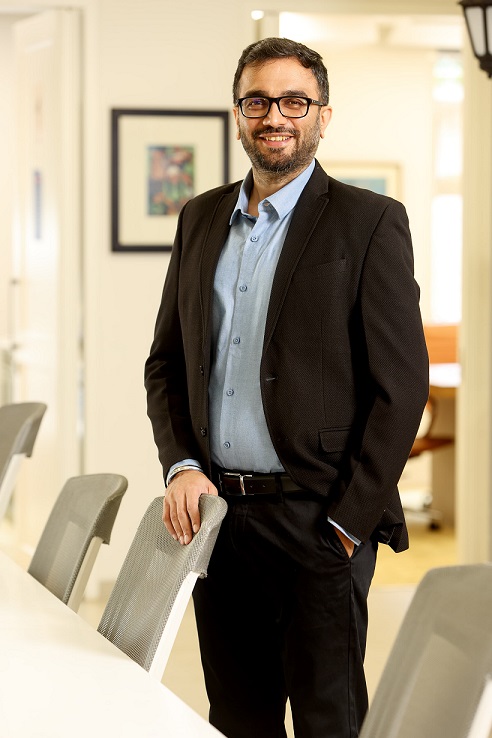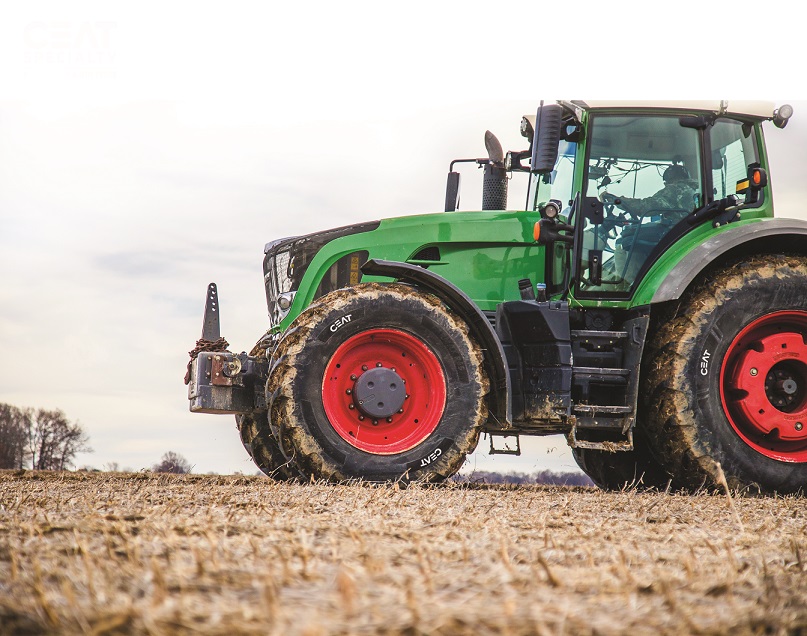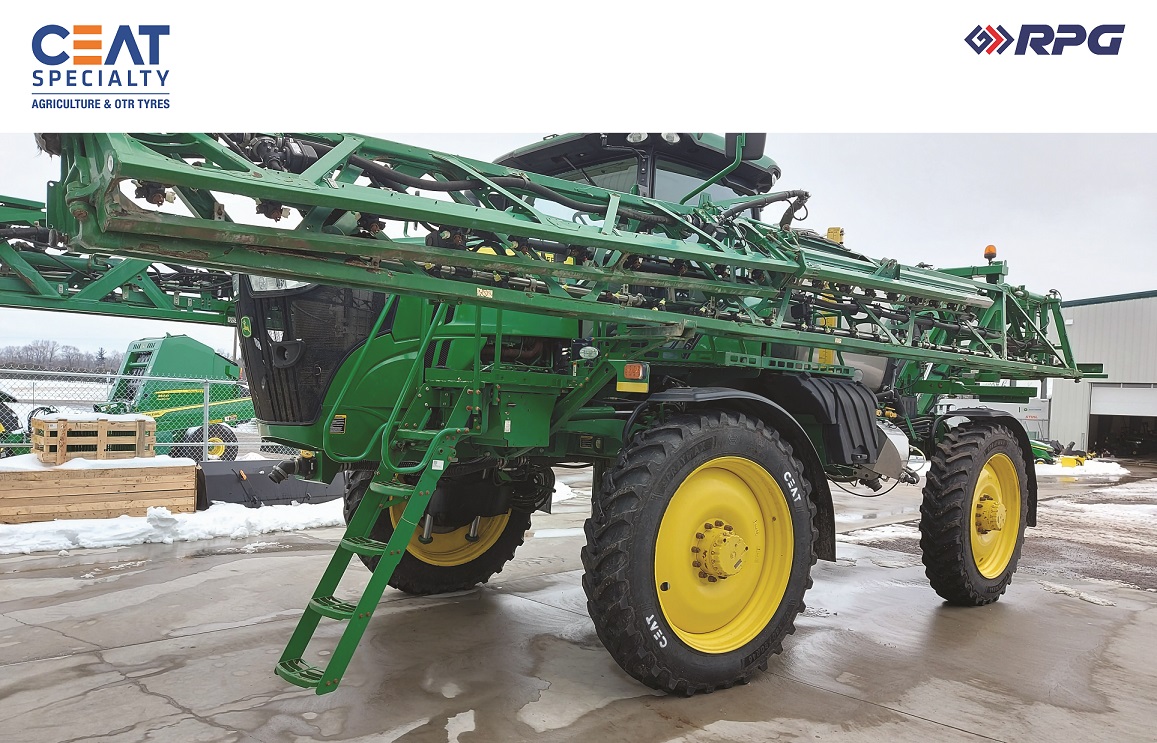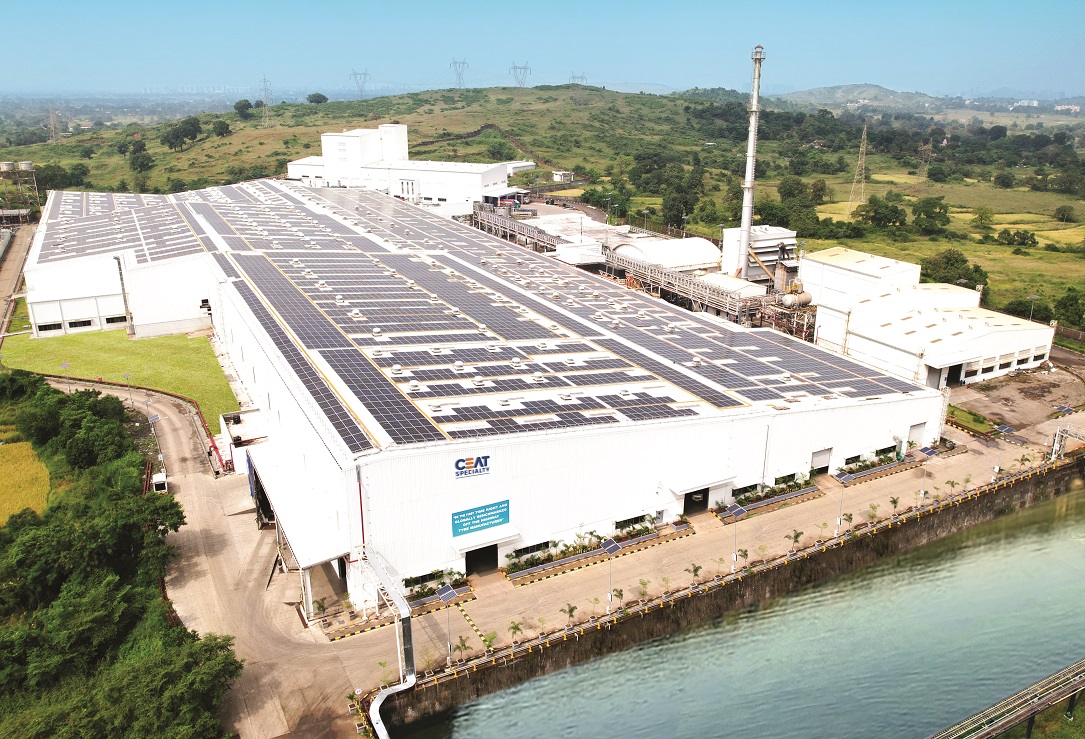Farmer And Quality-First: Approach Fuelling CEAT’S International Dreams
- By Sharad Matade and Gaurav Nandi
- August 11, 2025

As global demand for high-performance and sustainable speciality tyres rises, Indian manufacturers are stepping up, and CEAT is not behind. With a bold ambition to derive a quarter of its revenue from international markets, the company is leveraging deep farmer insights, advanced research and development capabilities and a quality-first mindset to penetrate competitive regions like Europe and North America. Its growing presence among global OEMs, automation-led manufacturing and entry into OTR segments signal a strategic evolution aimed at long-term global leadership.
The international tyre markets are getting ripe for Indian tyre makers. Every major tyre maker in the country is vying for a piece of share in European and American markets. While Europe has been predominantly the go-to market for Indian brands, recent expansions have led giants like CEAT explore speciality tyre markets in North and South America too. And the reason for a successful ride is its farmer and quality-first approach.
Speaking exclusively to Tyre Trends, Amit Tolani, Chief Executive at CEAT Specialty, said, “We’re aiming for 25 percent of our revenue to come from international markets. Currently, our key markets for exports include Europe, North America and Brazil in South America. Apart from these, South Africa and Australia round out our top five regions for off-highway tyres (OHT).”
CEAT has been steadily investing in capacity to ensure that it can meet demand across volumes and variety as it’s essential to have a complete product portfolio and sufficient production capacity to cater to these markets effectively.
“Our growth strategy for OHT revolves around completing the range, beyond agriculture and entering product white spaces where we have minimal offerings. This will help us deepen our presence in existing markets, enter new ones and diversify our portfolio further,” added Tolani.
However, the executive acknowledged that capturing the OHT tyre market in Europe is not an easy task considering its high competition. “In OHT, the first priority is to have a full-range product offering. We decided early on that we must become a one-stop shop. If our distributor or partner can’t find all their SKUs with us, they’ll look elsewhere. Today, we cover 70–80 percent of the SKU
range needed across major geographies. The remaining long tail is large in number and we’re actively working to close those gaps,” explained Tolani.
Differentiation is the next piece. CEAT’s quality-first approach has enabled it to enter international as well as local OEMs. Validating its tyres through OEMs is a rigorous process, but it gives customers and farmers confidence in product quality.
Europe is currently the larger market for the company as a cluster, but it’s growing rapidly in North America, especially in Canada, where it supplies to many OEMs and is present in the replacement market as well. In the US, it follows a multi-distribution strategy with good channel coverage.
EVOLVING DEMANDS
 Tolani noted that there is an increasing demand for technologically advanced tyres in these markets due to changes in farm machinery. And to satiate it, CEAT offers increased flexion (IF) and very high flexion (VF) tyres. These tyres flex more, improving soil contact and resulting in higher farm productivity. Both technologies are designed to allow tyres to carry heavier loads at lower inflation pressures. VF offers greater flexibility than IF, translating into better soil protection and improved traction.
Tolani noted that there is an increasing demand for technologically advanced tyres in these markets due to changes in farm machinery. And to satiate it, CEAT offers increased flexion (IF) and very high flexion (VF) tyres. These tyres flex more, improving soil contact and resulting in higher farm productivity. Both technologies are designed to allow tyres to carry heavier loads at lower inflation pressures. VF offers greater flexibility than IF, translating into better soil protection and improved traction.
Citing an example of working closely with OEMs, Tolani said, “Farms in Brazil are often located on sloped terrain. One OEM there asked for tyres that wouldn’t skid on gradients and we developed custom sizes and tread designs to meet this specific need. We work closely with OEMs and end users to understand such requirements and develop tailored solutions. This farmer-first approach underpins our research and product development.”
The executive also noted a trend of de-premiumisation in agricultural tyres as farmers are moving away from traditional premium brands and leaning towards quality players like CEAT, especially as the performance gap has narrowed significantly.
“We now deliver nearly comparable performance at more accessible price points. So our value proposition, which is quality-first products at competitive prices, resonates well, particularly in uncertain market conditions with rising tariffs and volatility. Even in slowdown years, Indian brands like ours have grown in global markets. We believe this trend will continue and CEAT is well-positioned to benefit from it,” averred a confident Tolani.
The company’s penetration in these markets starts with an OE-first approach, wherein farmers see the tyres on OEM-fitted equipment, which builds trust in the brand. This naturally drives traction in the replacement market.
The tyre maker is also expanding country-wise and region-wise, ensuring it has a strong on-ground teams across Europe, North America and South America to deepen the market presence.
AUTOMATION AND SHARE
The world of tyre manufacturing is unequivocally leaning towards automation for reducing downtime and increasing production efficiency. Riding on these two pillars, global giants have reorganised internal processes, and Indian tyre makers, including CEAT, are not shy of such advancements.
“Our Ambernath plant has a high level of automation. Unlike traditional OHT plants that rely on heavy manual labour, our facility is run by highly trained women operators, which is proof of how advanced and safe our systems are. With just the push of a button, they can produce high-performance tyres,” said the executive.
He added, “Our plant is unique in that it supports highly flexible production. We can manufacture single units based on customer demand. That’s rare in this industry and is a significant competitive edge in meeting varied and low-volume speciality requirements.”
CEAT has dedicated vendor capacity for tyre moulds too. Since it serves a wide range of OEMs globally, turnaround time is critical. It works with trusted partners in India and abroad, who are aligned with its well-structured annual and monthly planning cycles. For complex or urgent requirements, it co-develops solutions with these partners.
Currently, CEAT has a combined manufacturing capacity of approximately 350 tonnes per day in the speciality segment.
Commenting on current market challenges in the segment, Tolani explained that serving OEMs requires agility as their specifications change quickly, especially if a particular vehicle model needs to be revised or discontinued. CEAT’s ability to handle smaller lot sizes and fast turnaround helps it stay ahead.
In the aftermarket, its biggest challenge is awareness. “Farmers in Eastern India, where rice is cultivated in flooded fields, need different tyres than those used in drier regions. We’ve developed tyres specifically for rice puddling and now the task is to educate the farmer on why this new design performs better than conventional options. We conduct field meets and demos to bridge that knowledge gap,” noted the executive.
He also divulged that selling speciality tyres is a different ballgame compared to passenger or commercial tyres. It’s highly consultative and requires deep technical knowledge. Some of CEAT’s international sales professionals have over 30 years of experience in the segment.
 “We have a healthy mix of seasoned professionals, mid-career talent and freshers. We also deploy product specialists in key markets like Europe and North America, who train and support the front-line sales teams. Our research and development team are closely involved in this process as well,” contended Tolani.
“We have a healthy mix of seasoned professionals, mid-career talent and freshers. We also deploy product specialists in key markets like Europe and North America, who train and support the front-line sales teams. Our research and development team are closely involved in this process as well,” contended Tolani.
EXPANSION PLANS
Currently, CEAT’s revenue split in the OHT segment is around 60 percent domestic and 40 percent international. It aims to increase the international share in the near future.
“We’re now expanding into construction and mining (OTR) tyres. This segment accounts for nearly 70 percent of the OHT market, while agriculture makes up the remaining 30 percent. The next big step for us is manufacturing all-steel radial OTR tyres,” said Tolani.
He added, “We’re upgrading our Ambernath plant to start production of these tyres. Testing will begin this year, followed by phased market entry. This expansion is critical not only to enter a new category but to become a one-stop shop for our channel partners.”
 Sharing the reasons for entering the segment, Tolani said that being present across categories gives the company more share of wallet and with India’s ongoing infrastructure boom, there’s significant domestic demand as well. So, while exports remain a priority, the Indian market for OTR steel is also ripe with opportunity.
Sharing the reasons for entering the segment, Tolani said that being present across categories gives the company more share of wallet and with India’s ongoing infrastructure boom, there’s significant domestic demand as well. So, while exports remain a priority, the Indian market for OTR steel is also ripe with opportunity.
Over the next five years, CEAT aims to establish itself as a significant global player in agriculture, OTR and track segments. “We plan to increase our international footprint and continue building on our philosophy of innovation, speed and customer-centricity. With the planned acquisition of Camso, we will have access to global customers and product portfolio of construction OTR and tracks, thus accelerating our white space coverage,” quipped Tolani.
He also noted a trend of consolidation within the global tyre sector: “We’ve already seen large global groups acquiring speciality players. Material handling and solid tyres are also part of this trend. The real opportunity lies in how the segment evolves and premiums over time. That’s where differentiation and depth of capability will matter most.”
Backed by farmer insight, technological depth and a nimble, quality-first mindset, CEAT is redefining what it means to be a global Indian tyre brand. With bold moves into OTR and international markets, its speciality tyre journey is only just gaining traction. n
INNOVATIVE SOLUTIONS COMING UP NEXT!
CEAT is investing heavily in research and development for speciality tyres and has also achieved commendable feats. It currently manufactures the world’s largest agricultural tyre by size, claimed Tolani.
“We developed it for an OEM in Canada. We also make the world’s widest sprayer tyre. Developing them required significant engineering. We’re constantly working on new sizes, technologies like VF and IF, custom tread designs and machine-specific applications,” he contended.
The company’s approach to innovative solution is demand-led as it inculcates the needs of OEMs and farmers within the development scene and responds with highly specific, performance-driven innovation. Whether it’s anti-skid designs for Brazilian slopes or sprayer tyres with large footprints, its research and development team is geared towards meeting future agricultural demands.
Moreover, the company has an 80 percent sustainable agricultural tyre made from sustainable materials. It’s currently undergoing testing at Finland and will be officially launched at the upcoming Agritechnica exhibition. This is one of the major innovations the company is excited about.
“We’re also collaborating with our partners to develop intelligent tyres for port applications. These tyres will be equipped with embedded chips that enable real-time tracking of usage, wear patterns and operational hours, transforming them into smart, connected components of port machinery,” divulged Tolani.
In the past, CEAT has partnered with an Israeli start-up to develop cup-wheel and airless tyres. “There’s a lot of innovation happening in this space, especially because downtime is so critical for farmers. We often think of tyre downtime from the perspective of a car or truck owner, but when a farmer’s tractor stops in the middle of a field, it’s a major operational and emotional setback. We’re focused on reducing that risk through smarter and more resilient products,” contended Tolani.
The manufacturer is also seeing a shift in the industry towards electric tractors and machines, which require higher torque and frequent stop-start movement. That means specialised compounds and tyre designs, and it has developed a dedicated range to meet those needs as well.
Commenting on the company’s research and development strength, Tolani explained, “Most of our research and development happens in Mumbai, India, but we also have a strong global setup. We have a design and validation centre in Germany and a satellite design cell in Israel that contributes valuable inputs. In India, our core research and development is centred at our new research and development hub in Ambernath. Additionally, we utilise our research and development facilities in Chennai and Halol for materials, compounding and simulations.”
The executive also thinks that sustainable materials in speciality tyres is not just a trend but a necessity. He acknowledged that sustainable inputs are costly and require significant investment in research and development, but global warming is not a theoretical issue anymore. Consumers, especially in Europe, are becoming far more conscious.
“Sustainable materials in tyres may be expensive today, but with scale and progress, we expect cost normalisation. CEAT is committed to this journey and wants to give customers that choice,” Tolani concluded.
With a sharp focus on performance, precision and sustainability, CEAT is redefining the future of speciality tyres through customer-led innovation. Its global research and development network and strategic collaborations signal a long-term commitment to smarter, greener mobility solutions.
Linglong Tire Appoints Sherif Degheidy To Lead MEA Specialty Tires Division
- By TT News
- February 16, 2026

Sherif Degheidy has taken on the newly established position of Director Specialty Tires for the MEA region at Linglong Tire, effective 9 February 2026. He is now tasked with leading the strategic direction and sales efforts for the Specialty Tires division across the Middle East and Africa, reporting directly to Jeffrey Hughes, the Director for EMEA. A key aspect of his role involves collaborating closely with product development and marketing teams to position Linglong as a dominant force in the speciality tyre sector throughout these regions.
Degheidy brings a wealth of sector-specific knowledge to the company, having spent the last 12 years at Goodyear. There, he successfully managed the Speciality Tyres portfolio for the Middle East as well as East and West Africa, culminating in his role as OTR Sales Manager. His professional background also includes a period with KAL Tire, where he gained invaluable on-the-ground experience overseeing tyre operations at a gold mine in Egypt. This diverse career path has equipped him with a deep and comprehensive understanding of the industry from industrial, commercial and client perspectives. An Egyptian national, he holds a Bachelor of Science degree in Mechanical Power Engineering.
Degheidy said, "I am very much looking forward to my new role at Linglong Tire and hope to use my many years of experience in the tyre industry to achieve the ambitious goals together with my colleagues in the MEA region. Our most important task will be to optimise existing customer contacts and develop new customers and thus further strengthen our company's market position in the Middle East and Africa.”
Jeff Hughes, Director OTR EMEA, said, "We are delighted to welcome Sherif to the MEA team as Sales Director OTR. He brings a wealth of experience in the Middle East and African markets, and his early work as a site manager of a gold mine in Egypt gives him a unique perspective on how to engage customers, distributors and end users. Over the past 12 years, he has been instrumental in driving and growing a Premier manufacturer's business, and we look forward to him now doing the same for Linglong."
Tana Oy Marks 55 Years Of Innovation In Recycling And Waste Management
- By TT News
- February 15, 2026

Marking its 55th anniversary in 2026, Tana Oy is celebrating a legacy defined by the seamless integration of human expertise and advanced technology. For more than five decades, this commitment has driven the company’s evolution in the recycling and waste management sector. Tana has consistently grown in tandem with its customers, engineering robust machines, systems and services capable of withstanding the most demanding real-world conditions. As the industry pivots towards greater efficiency and smarter resource use, this enduring philosophy ensures Tana remains a steadfast partner, poised to deliver uncompromising solutions for future challenges.
A key pillar of Tana’s strategy is the continuous expansion of its global footprint. By strengthening its international presence and local operations, the company positions itself closer to its customers. This approach allows for more integrated support, fosters deeper partnerships and enables the tailoring of solutions to meet specific regional needs, all while upholding the reliability synonymous with a global brand. The strength of this network is evidenced by thousands of machines operating worldwide and longstanding industrial partnerships, milestones that underscore Tana’s reputation as a trusted partner for operational excellence and long-term dependability.
Looking forward, innovation remains central to Tana’s mission, with a focus on solutions shaped by real-world demands. Digital tools like TanaConnect exemplify this, linking machines, data and people to optimise operations and enhance lifecycle management. Simultaneously, the latest generation of recycling machines is designed for high performance and adaptability to evolving material streams. As Tana marks this anniversary, its direction is resolute. Continued investment in its people and technologies, from digital platforms to advanced machinery, ensures it will meet the growing demand for efficient waste-to-value solutions, ready to shape the future with no time to waste.
Goodyear India Quarterly Profit Rises As Labour Code Charge Hits Earnings
- By TT News
- February 15, 2026

Goodyear India Limited reported higher quarterly profit despite recognising INR 1.94 million of past service costs under India’s new labour codes, as revenue declined year on year.
Revenue from operations for the quarter ended 31 December 2025 fell to INR 606.9 million, from INR 631.7 million a year earlier. Total income was INR 611.5 million, compared with INR 636.4 million.
Profit before tax rose to INR 33.4 million, up from INR 13.3 million in the corresponding quarter last year. Net profit increased to INR 24.6m, compared with INR 9.5 million. Earnings per share were INR 10.68, against INR 4.11 a year earlier.
Total expenses declined to INR 578.2 million from INR 623.2 million. Cost of materials consumed fell to INR 221.5 million from INR 257.9 million, while purchases of stock-in-trade were INR 190.3 million, broadly in line with INR 191.1 million a year earlier. Employee benefits expense rose to INR 52.2 million from INR 44.4 million.
For the nine months to December 31 2025, revenue from operations decreased to INR 1,859.6 million from INR 2,005.4 million in the same period last year. Profit before tax rose marginally to INR 69.8 million from INR 67.9 million. Net profit was INR 51.8m, compared with INR 50.3m.
The company said it had recognised past service costs of INR 1.94 million under employee benefits expense in the quarter and nine months ended December 31 2025, following notification of the Code on Wages, 2019, the Industrial Relations Code, 2020, the Code on Social Security, 2020 and the Occupational Safety, Health and Working Conditions Code, 2020.
BKT Lifts Carbon Black Capacity As Volumes Recover Amid Tariff Pressure
- By Sharad Matade
- February 14, 2026

Balkrishna Industries (BKT) reported a six percent rise in quarterly volumes and commissioned additional carbon black capacity, even as US tariffs and volatile commodity prices weighed on parts of its export business.
The company’s sales volumes rose to 80,620 metric tonnes in the quarter to December 2025, up six percent year on year and about 15 percent higher than the previous quarter. For the first nine months, volumes were 231,536 metric tonnes, down onepercent from a year earlier.
Standalone revenue for the quarter was INR 26.82 billion, up 4 per cent year on year, including a realised foreign exchange loss of Rs 470 million relating to sales. For the nine months, revenue was Rs 77.62 billion, broadly flat, including a realised forex loss of Rs 1.17 billion.
Earnings before interest, tax, depreciation and amortisation were Rs 6.05 billion for the quarter, with a margin of 22.5 percent. For the nine months, EBITDA was INR 17.6 billion, down 11 percent year on year, with a margin of 22.7 percent. Profit after tax for the quarter was INR 3.75 billion, and INR 9.27 billion for the nine-month period.
Rajiv Poddar, Joint Managing Director of BKT, said the “geopolitical and macroeconomic environment continues to remain challenged and the situation with U.S. tariffs remain unchanged”.
In the US, sales momentum improved sequentially after a weak second quarter. Poddar said the group had regained some momentum by sharing the tariff burden with distributors. “Because of our strong brand positioning and quality and some major chunk of the tariffs to be shared between us and our channel partners, we have been able to gain some of the momentum that we had lost in the Q2,” he said.
He declined to quantify the impact of tariffs on margins, but confirmed that costs were being shared. Channel inventory in the US and Europe was “at par at where it should be”.
India remained the strongest market, supported by lower goods and services tax rates and favourable monsoon conditions. The domestic portfolio is split roughly 60 percent industrial and construction tyres and 40 percent agricultural tyres. Higher India contribution has a “slightly lower” average selling price, Poddar said, but margins have remained broadly stable.
In Europe, demand improved sequentially as earlier destocking eased. The European Union Deforestation Regulation, originally due to take effect from January 2026, has been deferred by one year. Madhusudan Bajaj, Senior President and Chief Financial Officer, said the current import duty into Europe is four percent, though the impact of the proposed free trade agreement with the EU is not yet clear.
Freight costs were about 5 percent of revenue in the quarter and are expected to remain in that range.
On raw materials, Bajaj said oil and natural rubber prices were moving higher, but it was “too early to say what will be the impact”. The average euro rate in the quarter was about INR 97.
Capital expenditure remains elevated. The company has spent about INR 22 billion in the first nine months of the financial year and expects total spending of roughly INR 25–26 billion in FY2026, with the balance of committed projects to be completed in the following year.
During the quarter, BKT commissioned a new carbon black line, taking total capacity to 265,000 metric tonnes per annum. The incremental capacity is intended for external sales rather than captive consumption. Carbon black accounted for less than 10 percent of revenue in the quarter, with margins expected to align with industry averages.







Comments (0)
ADD COMMENT